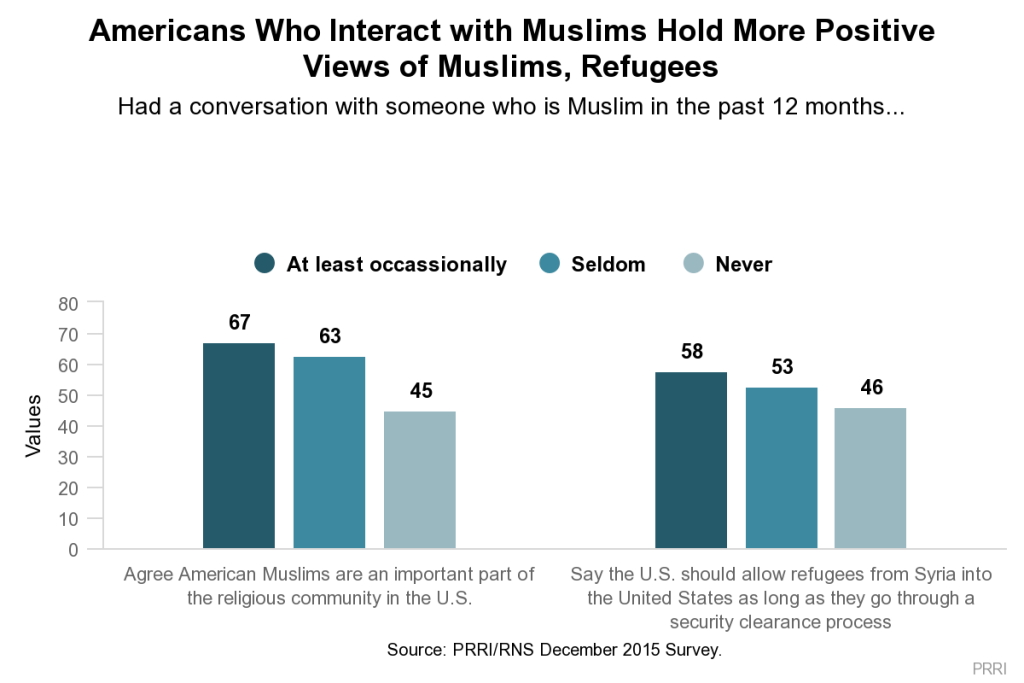President Trump’s recent executive orders banning all refugees and immigrants from seven predominantly Muslim countries were met with protests at major airports across the U.S. Many protestors cited concerns about Muslim friends and colleagues as an important reason why they were protesting.
While previous analysis has shown sharp partisan division in attitudes towards Muslim immigrants, social context also plays an important role.
New PRRI analysis finds that relatively few Americans regularly interact with Muslims. Only eight percent report having had a conversation with someone who is Muslim at least once a day in the past year. About three in ten (29 percent) report occasional interactions with someone who is Muslim, while more than six in ten say they seldom (26 percent) or never (36 percent) have had such a conversation.
And even Americans who have had conversations with Muslims at least occasionally in the past year express much more positive views of Muslims than those who report much less regular interaction.
 Fully two-thirds (67 percent) of people who talk with Muslims at least occasionally agree that Muslims are an important part of the American religious landscape. In contrast, fewer than half (45 percent) of those who have never spoken with a Muslim in the last year believe that American Muslims are an important part of the religious community here.
Fully two-thirds (67 percent) of people who talk with Muslims at least occasionally agree that Muslims are an important part of the American religious landscape. In contrast, fewer than half (45 percent) of those who have never spoken with a Muslim in the last year believe that American Muslims are an important part of the religious community here.
Social interaction with Muslims also influences views on U.S. refugee policy. Among Americans who have had at least occasional conversations with Muslims, nearly six in ten (58 percent) say the U.S. should allow refugees from Syria into the country provided they go through a security clearance. Americans who report no interactions with a Muslim are split: 46 percent are in favor of allowing Syrian refugees into the U.S., while 45 percent believe that they should not be allowed into the country at this time.
For more, read through the PRRI/RNS December 2015 survey.





